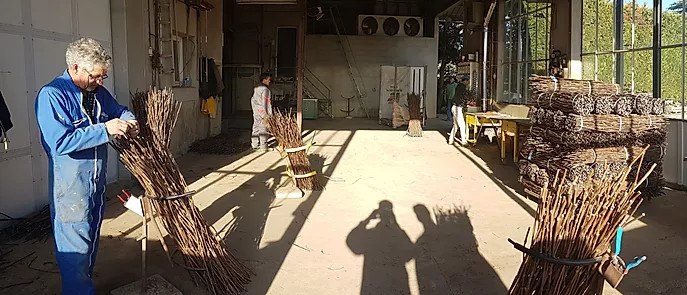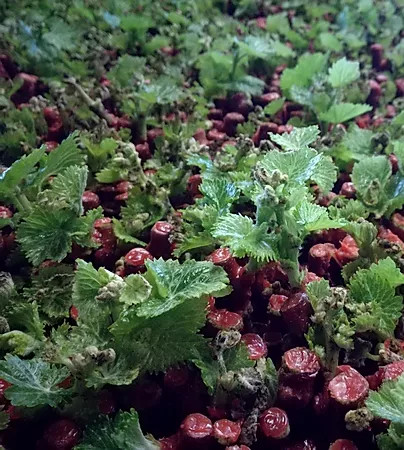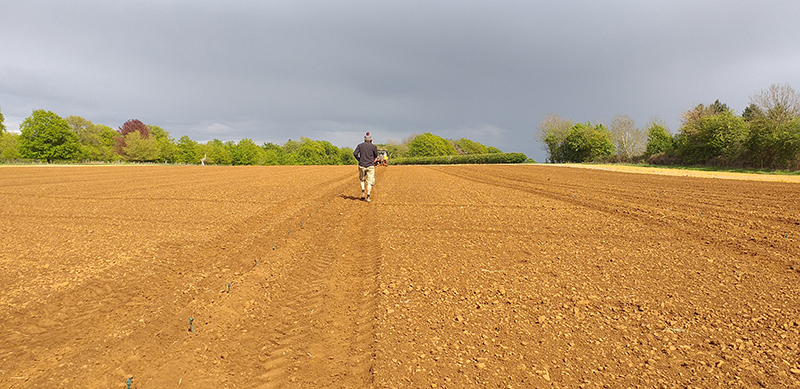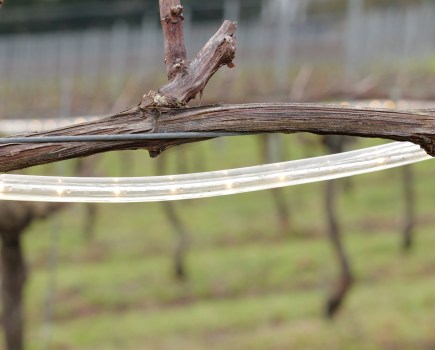Interview with Pierre Denis.
• www.vine-works.com • sales@vine-works.com • 01273 891777
At Vine-Works we choose our suppliers with extreme caution, ensuring the products are of the highest quality and the company matches our own values and ethos. This is exactly the case with the nurseries where we source our vines from. We caught up with our good friend and long-standing colleague, Pierre Denis, whose family run Tourette nursery in France.
Tell us about your family’s history in the vine industry
They have always been involved in nurseries and propagating vines. I am the 4th generation of the family to run the business. When Phylloxera struck the French wine industry in the 1860s and American rootstock was identified as resistant, several nurserymen were approached in the region to cultivate these rootstocks and graft onto varieties. Amongst these pioneers was my Great Grandfather!
How did you become involved in the UK wine industry?
My cousin was working in London in 2008 and I had read positive articles about the emerging English wine industry. I arranged a trip for one week to see her and also spend time visiting prospective vineyards in the UK to see if they would be interested in a supply of vines. I managed to sell some that year to Nyetimber as one of my first customers here and I’ve been busy selling vines in the UK ever since.
What are the most common varieties bought for the UK market?
We supply predominantly clones of Chardonnay, Pinot Noir and Meunier for traditional method sparkling. We also supply small quantities of Pinot Noir Precoce for still winemaking as well as recently approved in France disease resistant varietals, such as Floreal, Artaban, Vidoc, Souvignier Gris etc. Not are all suitable for the UK but it is a very interesting area!
What are the challenges you face?
Weather, weather and weather!
How has the UK wine industry changed from your perspective?
Aside from the growth in the number of hectares, the major difference is the increase in knowledge of growers and producers. There is a better understanding of ground preparation, site selection, soil and rootstock compatibility. Contrary to France the UK is not afraid to employ and import this knowledge from other wine growing regions around the world in the form of experienced vineyard managers.
What is your favourite/least favourite part of the process?
Least favourite: Dealing with the impact of bad weather.
Favourite: After planting the nursery each year when the fields quickly all turn a sea of green! You know that all your hard work was worth it!
How has technology helped in grafting vines/determining rootstocks?
The use of machines has helped in several aspects of the process to improve productivity and consistency, things like tractors, forklifts and telehandlers. But for the most part the process has remained unchanged over the decades and is still heavily reliant on hand labour. For example, all our planting is done by hand, there is still no planting machine that can plant as densely as we require!
How do you manage to predict demand 1-2 years in advance?
It’s difficult! But we graft mainly based upon our previous sales as an indicator. As long as we produce excellent quality each year and keep our customers happy, we will always sell our vines. As long as there is good demand for wines in France there will be demand for vines. What is difficult to predict is large ad-hoc orders from large, emerging wine regions such as the UK!
What do you think of English wines?
I think the quality of the sparkling wines is excellent and this has been achieved in a short period of time which makes it more remarkable. I do however think that sometimes it can be a bit expensive, which can be prohibitive to new customers. I also look forward to the UK finding its still red varietal, I’ve tried many red wines from the UK over the years but still think you need to find the correct variety.
Where do you see the UK wine industry in 10 years’ time?
Like the Ardéche wine region, where we are based, 8,000ha!
Vine-Works would like to say a huge ongoing thank you to Pierre Denis and his family. We look forward to continuing to work together and exploring the options for different varieties being planted in the UK!
-

> Pierre Denis -

-





